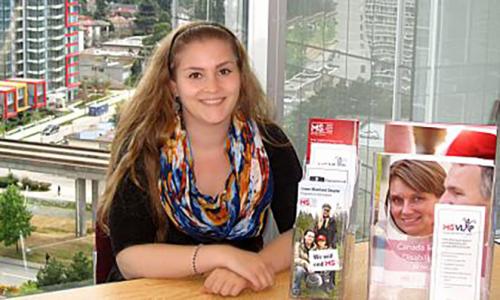
Moving away from home is a life changing experience. It is a combination of exciting and scary, happy and sad, and everything in between. Throw in a new city and a new job and everything just intensifies. One of the first questions that come to mind are: what do you do and where do you start?
In March, I was offered a co-op position I applied for almost a year ago. I was very excited to get it, however it was located in Ottawa. Having never been past the prairies, this was all very new to me. Other than knowing that it is the nation’s capital, it has a hot climate, and that milk comes in bags rather than jugs, I knew absolutely nothing about the city. Furthermore, I was at a loss of what I needed to do.
Five days before starting my co-op term I arrived at the Ottawa airport with two giant suitcases and only a vague idea of where I was going to stay. Clearly, this is not ideal. Here are five tips to help you avoid ending up in my shoes.
1. Prepare:
Simple enough, right? Wrong. Preparing can be one of the hardest things to do. There is so much to prepare for: what to bring, where to live, transportation, etc. Preparing means doing your research ahead of time and knowing what you have to do. Remember, preparing and planning are different. Sometimes plans fall through. In my case, where I was suppose to stay was not as advertised. Quickly I found all the housing listings I originally found suitable, visited several of them, and rented the one I found most appropriate – all within a few hours.
2. Packing
One of my biggest mistakes was packing too much. The moment I started packing it seemed as though I needed everything in the house: clothes, electronics, and even stationary.
This is problematic because luggage space is limited and I wasted a lot of time stuffing my suitcases to their maximum capacity. Three months in and I have not touched half the stuff I brought with me. Consider this rule of thumb before you pack: pack anything that you cannot buy in the new city and you have used within the last three weeks. If you have room left over, then use your discretion. Just remember, anything you pack is going to weigh you down going there and coming back.
3. Transport:
Depending on where your co-op is located, you can drive or fly to the new city. Most of the co-ops I am working with flew here, but a few drove. One even got his car shipped (though that is a lot more expensive). Some things to consider if you choose to fly are airlines, dates, and costs. I highly recommend using flights.google.ca as it allows you to compare different flight times, dates, costs, and airline information. Just remember to factor in any surcharges and extra fees.
In addition, one thing to keep in mind is public transit in the new city. Check out their transit system beforehand and determine what kind of passes and tickets they offer. Remember to factor in where you live, where you work, and where you hang out when deciding on a fare option. In my case, I got a monthly pass for my daily commute.
4. Housing:
As one of the bare necessities of life, housing is clearly the most important. Everyone has their own requirements and taste for where they want to live. Some may prefer living near work (like me) while others may prefer living in a different neighborhood. Proximity to workplace, grocery stores, shopping malls, and transit are all factors to consider. In addition, furnishing, air-conditioning/heating, parking, etc are also things to keep in mind. Good places to look for housing are Kijiji, Craigslist, and advertising websites. As always, make sure you are alert and on guard when communicating with others and when you check out your potential new home.
5. Administration:
There are a lot of administrative things to be done before leaving, especially if you are moving outside of BC. Similar to going on a trip, you should notify your credit card provider and bank before leaving. In addition, due to the extended period you are leaving the province, ICBC, BC Health, and other government and insurance-related institutions should be notified. This includes visiting your doctor to fill up on repeated mediation.
Depending on your monthly subscriptions, such as cell phone plans, cable and Internet packages, and gym memberships, you might want to make adjustments. And do not forget to update your address once you have arrived and found a new place.
Oh and a bonus piece of advice …
BONUS: Family and Friends:
They are important parts of our lives, especially when moving away. Prior to moving, check with them and your network to see if anyone can offer advice or help with your move. Knowledge of the city, a place to stay, a friend who can show you around, or even a good restaurant is beneficial. In addition, do not forget to meet up with family and friends to spend time with them. While in today’s day and age, calling and messaging is very accessible and can help us keep in touch with loved ones. But nothing compares to spending time with them before you leave.
Once you are settled in the new city and your new job, remember to make new friends. Whether they are your new roommates, neighbors, or coworkers (including fellow co-ops), they are the ones that will make or break your stay.














